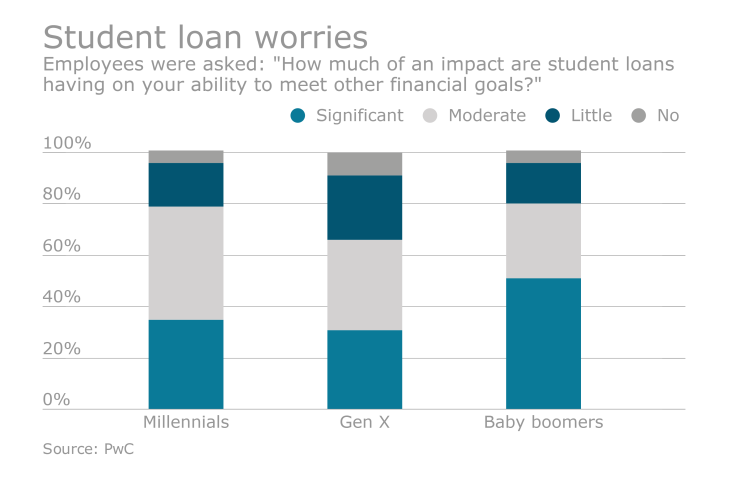Don’t even think about considering student loan repayment benefits as just a flash in the pan.
Student loan repayment benefits “will be the next 401(k),” Brendon McQueen, Tuition.io founder and CEO said recently during the Dig|Benefits conference in Austin.
“The 401(k) started spreading like wildfire in the 1980s. We think this will happen again with student loan contributions,” he said.
Evidence points to student loan repayment as the hot, new employee benefit. Though only about 3% of employers currently offer the benefit, according to 2015 data from the Society for Human Resource Management, big name firms including PricewaterhouseCoopers and Fidelity have begun offering the perk, pointing to growing enthusiasm.
California-based Tuition.io is one such startup helping companies administer the benefit; others include Austin, Texas-based Student Loan Genius.

Importantly, McQueen predicts, it will become a hot benefit trend because of its universal appeal. “It’s super bipartisan, it’s pro-consumer and it’s pro-business,” McQueen said. “People like it. Employers go over the moon for this.”
Ultimately, helping students pay off student loans will help attract talent.
“Employers are offering this because the talent war race is real. It will recruit, retain and engage [employees],” he said, adding that it’s an easy benefit to offer because everyone can acknowledge this is a problem worth fixing.
“You don’t have to tell [employees] this is a problem,” he said. “You don’t have to educate them on it, like you would a health savings account. They already know [this is a problem].”
Though the benefit clearly appeals to the millennial demographic, who are entering the workforce massively in debt, he said, it will also be important for older workers. In fact, McQueen noted, 35% of all student debt is held by people over the age of 39. And a lot of them, too, have Federal Parent PLUS Loans, loans for parents to help finance their children’s college educations.
Dealing with student debt will also motivate employees to start contributing to their 401(k), which often gets put on hold when student debt bills pile up, he said.
“This will engage your employees,” McQueen said. “It’s the future.”





